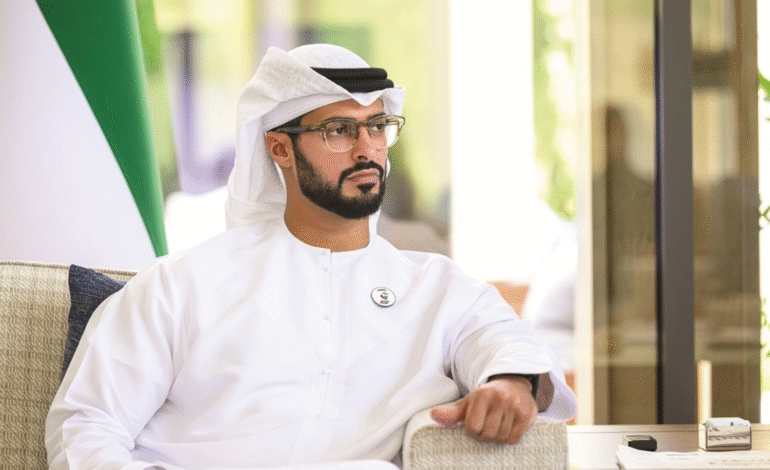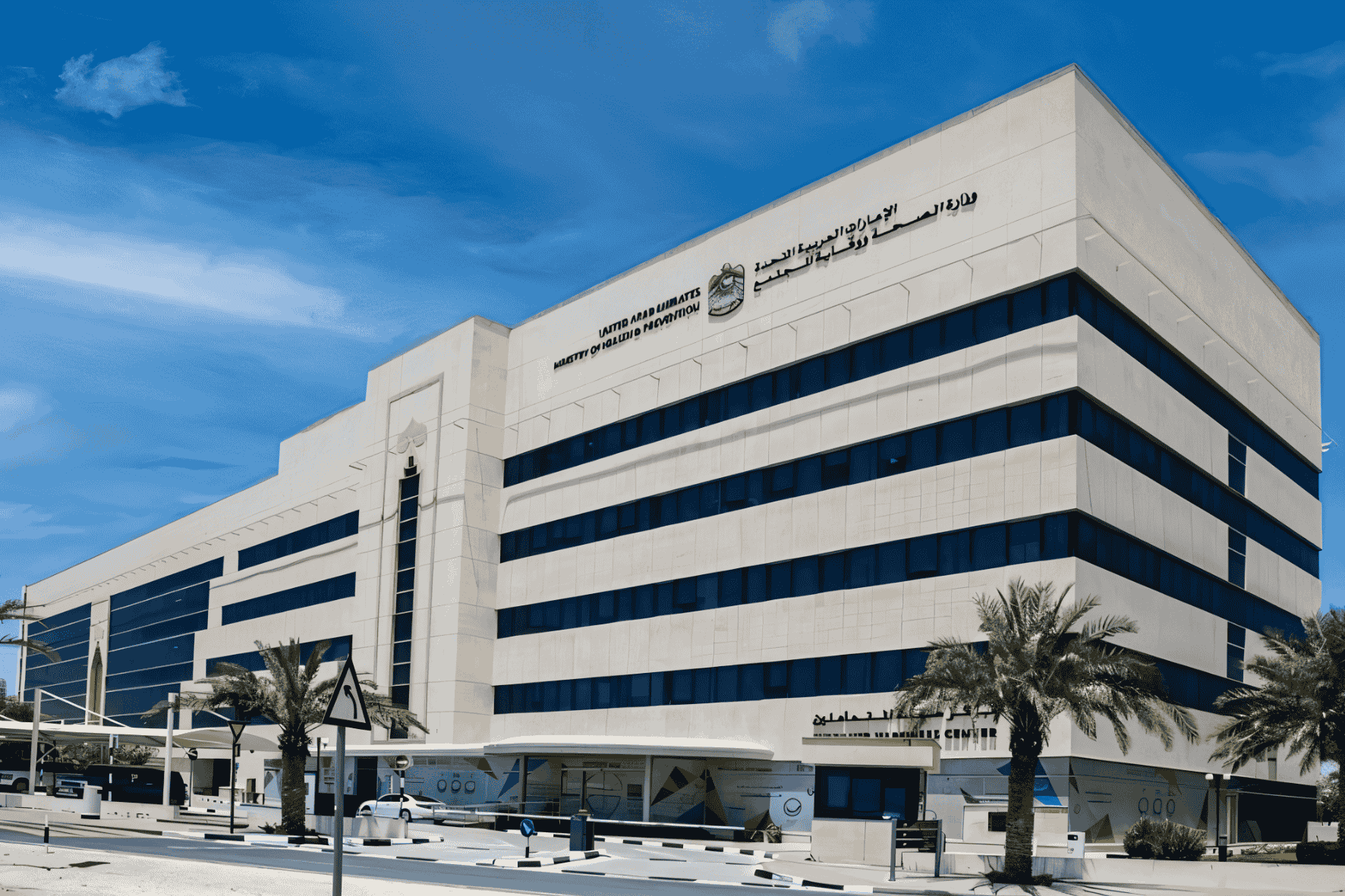UAE’s National Anti-Narcotics Authority Fights Drug Trafficking

In a bold move to strengthen its fight against drug-related challenges, the United Arab Emirates (UAE) has established the National Anti-Narcotics Authority, a landmark initiative led by Sheikh Zayed bin Hamad bin Hamdan Al Nahyan. This newly formed authority is set to become the cornerstone of the UAE’s efforts to tackle narcotics trafficking, drug abuse, and associated crimes, reinforcing the nation’s zero-tolerance policy on illicit substances. With a comprehensive mandate that spans policy formulation, rehabilitation programs, and international collaboration, the authority aims to address the multifaceted issues surrounding narcotics in a holistic and proactive manner.
This development aligns with the UAE’s ongoing commitment to public safety and health, building on existing frameworks like the Federal Decree-Law No. 30 of 2021 on combating narcotics and psychotropic substances. By creating a centralized body to oversee anti-narcotics efforts, the UAE is positioning itself as a global leader in drug prevention and addiction rehabilitation, ensuring a safer and healthier society for its citizens and residents.
A Strategic Response to a Growing Global Challenge
The establishment of the National Anti-Narcotics Authority comes at a critical time when drug trafficking and substance abuse are pressing global concerns. The UAE, known for its stringent laws and proactive governance, has recognized the need for a dedicated entity to address these issues comprehensively. The authority, chaired by Sheikh Zayed bin Hamad bin Hamdan Al Nahyan, is tasked with formulating national policies, strategies, and legislation to combat narcotics-related challenges effectively.
One of the authority’s primary objectives is to disrupt drug trafficking networks by collaborating with competent authorities to track and dismantle smuggling operations and distribution channels. This includes leveraging advanced technologies and intelligence-sharing mechanisms to monitor and intercept illegal activities. By focusing on both prevention and enforcement, the authority aims to curb the supply of narcotics and psychotropic substances entering or circulating within the UAE.
Comprehensive Mandates for a Holistic Approach
The National Anti-Narcotics Authority is not limited to enforcement alone; its mandates encompass a wide range of activities aimed at addressing the root causes of drug-related issues. Key responsibilities include:
- Policy Development and Legislation: The authority will spearhead the creation of anti-narcotics policies and propose amendments to existing laws to ensure they remain robust and relevant. This includes regulating the use of chemical precursors—substances often misused in the production of illicit drugs for non-medical purposes.
- Treatment and Rehabilitation: A significant focus of the authority is on addiction treatment and rehabilitation programs. By overseeing specialized units, the authority will ensure that individuals struggling with substance abuse receive comprehensive care, including medical treatment, psychological support, and vocational training to facilitate their reintegration into society.
- Research and Awareness: The authority is tasked with conducting studies on addiction and disseminating research to raise public awareness. By educating communities about the dangers of drug abuse, it aims to prevent substance misuse before it begins. This includes organizing awareness campaigns in schools, universities, and public institutions.
- Monitoring Medical Facilities: To prevent the illegal sale of narcotics and psychotropic drugs, the authority will work closely with healthcare providers to monitor medical and pharmaceutical facilities. This ensures that controlled substances are used strictly for legitimate medical purposes.
- Data-Driven Platforms: The authority will manage a national platform to track the movement of narcotic and psychotropic substances in coordination with relevant agencies. This platform will enhance transparency and accountability in the handling of controlled substances.
- International Cooperation: Recognizing that drug trafficking is a global issue, the authority will collaborate with international organizations and foreign governments to exchange data on smuggling networks. This aligns with the UAE’s commitment to international conventions on narcotic and psychotropic substances, ensuring a unified global response to the drug trade.
Building on a Strong Legal Foundation
The establishment of the National Anti-Narcotics Authority builds on the UAE’s existing legal framework, particularly the Federal Decree-Law No. 30 of 2021, which criminalizes the production, import, export, transport, buying, selling, possessing, or storing of narcotics and psychotropic substances unless conducted under strict medical or scientific supervision. This law reflects the UAE’s zero-tolerance policy toward recreational drug use and sets the stage for the authority’s comprehensive approach.
Additionally, the UAE has a history of progressive reforms in its anti-narcotics strategy. For instance, amendments introduced in 2022 allowed first-time drug offenders to receive rehabilitation instead of punitive measures, reflecting a shift toward viewing drug addiction as a public health issue rather than solely a criminal one. The authority will further this approach by establishing specialized treatment centers and ensuring that rehabilitation programs are accessible and effective.
Rehabilitation: A Path to Recovery
A cornerstone of the National Anti-Narcotics Authority’s mission is its focus on addiction rehabilitation. The UAE recognizes that punishing individuals for substance abuse alone is not enough; addressing the underlying causes of addiction is crucial for long-term success. The authority will oversee the establishment of specialized units dedicated to the treatment and rehabilitation of drug addicts, offering a range of services, including:
- Medical Treatment: Providing access to detoxification programs and medical care to help individuals overcome physical dependence on drugs.
- Psychological Support: Offering counseling and therapy to address the psychological aspects of addiction, helping individuals build resilience and coping mechanisms.
- Vocational Training: Equipping recovering addicts with skills to reintegrate into the workforce, fostering financial independence and social stability.
- Community Reintegration: Supporting individuals in rebuilding relationships with family and society, reducing the stigma associated with addiction recovery.
The authority’s rehabilitation programs will be guided by evidence-based practices, drawing on research studies conducted by the authority itself. These studies will explore the causes, patterns, and impacts of drug addiction in the UAE, providing valuable insights to inform policy and practice.
Strengthening Enforcement Through Collaboration
The National Anti-Narcotics Authority will work closely with law enforcement agencies, including the Ministry of Interior, to enhance drug enforcement efforts. By tracking and dismantling smuggling networks, the authority aims to disrupt the supply chain of illicit drugs at its source. This includes targeting both local and international trafficking operations, ensuring that the UAE remains a hostile environment for drug traffickers.
The authority will also leverage digital platforms to monitor the movement of narcotics and psychotropic substances, ensuring that all transactions involving controlled substances are transparent and traceable. This data-driven approach will enable authorities to identify and address vulnerabilities in the system, preventing the diversion of drugs into illegal channels.
International Partnerships for a Global Impact
As a signatory to several international conventions on narcotic and psychotropic substances, the UAE is committed to playing a leading role in the global fight against drug trafficking. The National Anti-Narcotics Authority will strengthen these efforts by fostering partnerships with international organizations such as the United Nations Office on Drugs and Crime (UNODC) and the International Narcotics Control Board (INCB). By sharing intelligence and best practices, the authority will contribute to global efforts to combat the drug trade.
These partnerships will also facilitate the exchange of information on drug smuggling networks, enabling the UAE to stay ahead of emerging threats. For example, the authority will collaborate with foreign governments to track the movement of chemical precursors used in the production of illicit drugs, ensuring that these substances are tightly regulated.
Public Awareness and Prevention
Preventing drug abuse before it starts is a key pillar of the National Anti-Narcotics Authority’s strategy. Through targeted awareness campaigns, the authority will educate the public about the dangers of narcotics and psychotropic substances, particularly among vulnerable groups such as youth and students. These campaigns will be conducted in collaboration with schools, universities, and community organizations, ensuring broad outreach and impact.
By disseminating research findings on addiction, the authority will also empower communities to make informed decisions about substance use. This includes highlighting the health, social, and legal consequences of drug abuse, as well as promoting healthy lifestyles and alternatives to substance use.
A Vision for a Drug-Free UAE
The establishment of the National Anti-Narcotics Authority marks a significant milestone in the UAE’s journey toward a drug-free society. By combining enforcement, rehabilitation, research, and international cooperation, the authority is poised to address the complex challenges of drug trafficking and substance abuse comprehensively. Under the leadership of Sheikh Zayed bin Hamad bin Hamdan Al Nahyan, the authority will set a new standard for anti-narcotics efforts, reinforcing the UAE’s reputation as a global leader in public safety and health.
As the UAE continues to evolve its approach to combating narcotics, the National Anti-Narcotics Authority will play a pivotal role in shaping policies, supporting communities, and protecting the nation from the scourge of drugs. Through its multifaceted strategy, the authority is not only addressing the symptoms of drug addiction but also tackling its root causes, paving the way for a healthier and more secure future.







